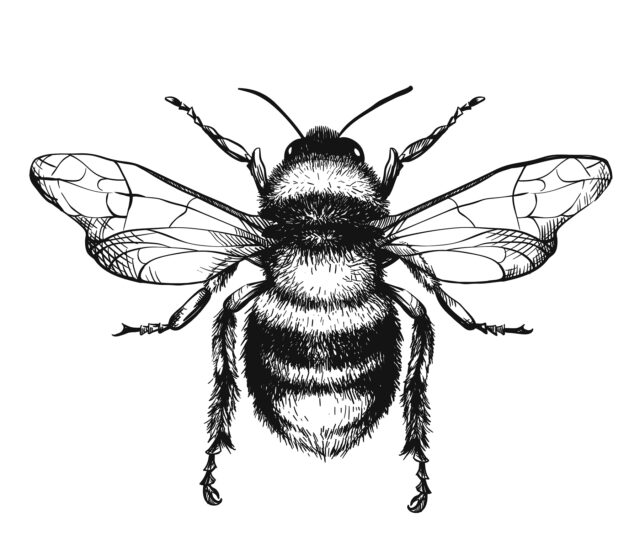
By Julia Szabo
Humankind is now learning the hard lessons of trying to stay alive in a pandemic. Bees, notes Deborah Klughers of Bonac Bees, have been bravely facing the threat of extinction for decades: “Insecticides, pesticides, herbicides…these are their pandemic,” she says. Advocates of bees fear that their will to survive will soon collapse from exhaustion—even in the pollinator paradise that is the East End, where landscaping businesses like Marders of Bridgehampton lovingly provide chemical-free services that prioritize the safety of people, pets, and pollinators alike. Says Mary Woltz, owner-operator of Bees’ Needs, where—as her slogan states, summing up her bee-centric mission—“the bees’ needs come first”: “We can divide bee colonies to replace our losses, but we can only go for so long. The pollinator crisis is real.”
Angelina Jolie’s new mission to protect pollinators is one high-profile example of a growing affinity between women and bees around the world. The East End happens to be a hive of activity for female beekeepers, who are all managing impressive numbers of colonies with a gentle touch that produces effective results—and often derision from beekeepers of the opposite sex.
“Beekeeping is historically a male-dominated profession,” says Klughers of Bonac Bees, one of the largest female-owned beekeeping outfits on Long Island, with colonies across the East End. “I’ve had men tell me, ‘You’re so gentle with your bees’—as if that’s not how they do it. I know numerous female beekeepers who do not want to crush even one bee. Women do make better beekeepers: We’re gentle, nurturers by nature,” she adds. “It makes sense that women should be moving into this profession and being very good at it. We are traditionally the gatherers for the house, and so are bees: Theirs is a matriarchal society; they go out and gather food and medicine for the entire hive, just as women make healing remedies and potions for their families.”
As has been observed when women work with a variety of creatures great and small, from horses to dogs to, yes, pollinators, “It’s a sensibility of working with the animal rather than working the animal,” says Woltz, who refers to her bees as “the girls.” The exquisite honey they produce has won Woltz five Good Food Awards. (Although vegans don’t typically eat honey, because Woltz’s beekeeping standards are so high, she has been unofficially approved by vegan authorities, with Bees’ Needs honey used in some vegan cereals.)
Bees work and play well together; the females of the species are true leaders and colleagues. “I have deep awe for how bees are able to get along in such cramped conditions,” Woltz says, citing a corresponding example of female squad goals in the human realm: “Look at our House of Representatives—it’s so beautiful.” In bee culture, “one assumes, because there’s a queen, that she runs things. It’s not the case: She’s busy laying 1,500 eggs during spring buildup, equivalent to her body weight. She’s everybody’s Mom.” Bees have been in trouble for some time, she says: “They are a keystone species, and we are losing them at a rate of one-third of our hives per year. This past year’s losses were 43 percent—the second-highest loss ever recorded.”



